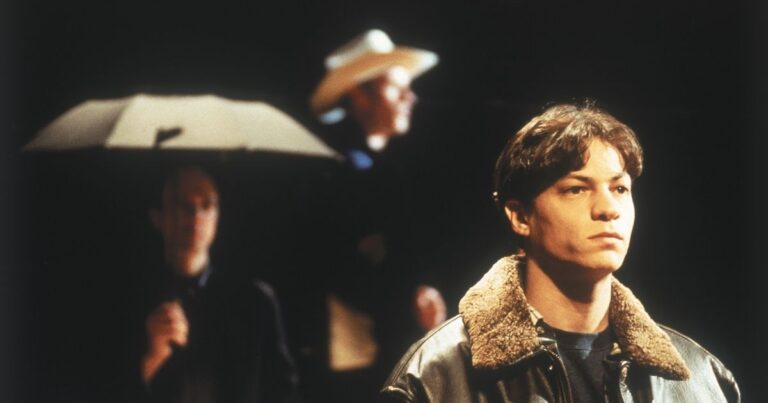
Ruff Justice
By Kieran Adair
A few weeks ago, the New South Wales police announced a major change to the functioning of the state’s justice system: at Above and Beyond, a recent concert in Sydney, their sniffer dogs would no longer be used as indicators of potential drug possession, but evidence of drug possession itself.
“NSW Police… ripped up the tickets of people just because they were identified by drug dogs, even when no drugs were found,” Stephen Blanks, President of the NSW Council for Civil Liberties said.
“In effect, the police have declared a willingness to infringe on the rights of people who have done nothing wrong. The tickets in question cost over a hundred dollars. To treat those people in that way shows a fundamental lack of respect for their rights, and for due process.”
While the unjustness of the police’s actions that night has drawn fresh criticism of the shaky grounds the program rests on, turning a blind eye to evidence has been a defining feature of sniffer dog policy for more than a decade and a half.
Since its introduction in 2002, the drug sniffer dog program has been an abject failure.
First, we were told their presence would assist police in operations against high volume drug traffickers, but they failed to do that.
Then we were told they helped make festivals and nightclubs safer, and they failed to do that too.
But at least they did the one thing they were expected to do, and correctly identified people in possession of illicit substances … actually, no, it turns out they don’t do that either.
Sniffer dogs are wrong about 80 per cent of the time, a rate that’s actually increased over the years since the program started.
There’s also evidence that their presence at concerts, clubs and festivals encourages riskier drug taking, as punters panic and take all their drugs at once to avoid detection.
And rather than being used to target high level drug traders, you’re more likely to see them used at train stations, and outside nightclubs, targeting the young and vulnerable.
What’s worse is that the Government’s known all of this since 20006, when its own Ombudsman reviewed the program and recommended it be scrapped:
“These findings have led us to question whether the Drug Dogs Act will ever provide a fair, efficacious and cost effective tool to target drug supply. Given this, we have recommended that the starting point, when considering this report, is to review whether the Drug Dogs Act should be retained at all.”
Last year Newtown MP Jenny Leong moved a motion to end sniffer dog operations in New South Wales, calling the operation “costly, ineffective, discriminatory and intimidatory.”
“Time after time the stats show that the program just doesn’t work. Health and law specialists say so. The Ombudsman says so. But the government is stubbornly refusing to see the evidence,” Ms Leong said.
Unsurprisingly, that the bill was voted down.
Where other jurisdictions have moved toward recognising the harmful effects of their sniffer dog programs, limiting their use in favour of exploring alternatives that focus on harm minimisation, NSW pushes forward, allowing police greater and greater discretion over the program – their actions at Above and Beyond being the latest example of overreach.
Earlier this year, promoters, politicians and police in the ACT made history by allowing the first proper pill tests facility to be set up at Groovin’ In The Moo.
Of the drugs tested, 50 per cent were found to contain pure MDMA, 50 per cent contained ‘other’ substances such as lactose, sweetener or paint, and two of the samples contained ‘deadly’ substances
Dr David Caldicott, a member of STA-SAFE who was involved in setting up the program, said five festival-goers decided to destroy their pills after being given their test results, with “a quarter to a third” of punters telling pill testers that they would no longer be taking their pills.
“Probably, we altered the way that the majority of people were going to take their substances, in a manner that rendered them far less likely to end up in hospital,” he said.
However, when Troy Grant, the NSW Minister for Police, was asked whether he would consider allowing a similar program to go ahead in NSW, he recently told conservative columnist Miranda Devine, “that’s just not going to happen.”
Political cooperation is crucial for promoters looking to conduct the type of drug tests pioneered at Groovin’ In The Moo, because of the cost of the infrared scanning equipment, and risk of it being confiscated by authorities opposed to it.
However, there is some movement to change the way drug policy is thought of in NSW.
Four parliamentarians from across the political spectrum recently joined forces to sponsor an upcoming summit on Harm Minimisation scheduled to take place in August.
“Drugs policy must focus on preventing death and injury, encouraging those with problems to get effective help and on reducing drug-related crime,” Sydney MP Alex Greenwich, one of the sponsors of the Summit, said.
“It’s time that we had an open discussion about drugs focussed on reducing harm in the community without hype, hysteria, moralism and stigma.”









